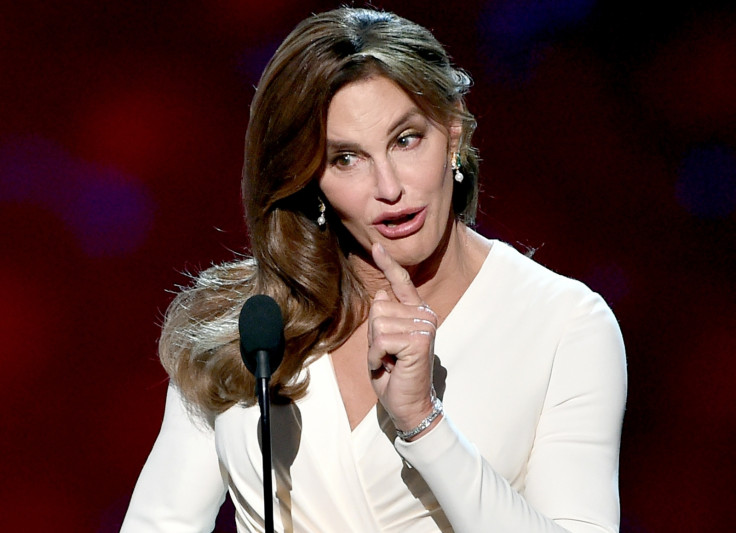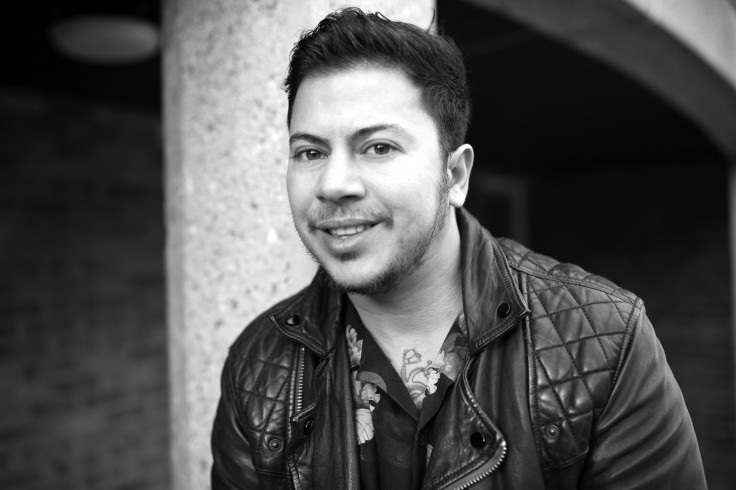These are the questions you should never ask trans people
KEY POINTS
- Caitlyn Jenner hit back at Piers Morgan after he asked her if she has sex since transitioning
- IBTimes UK asked trans people to explain why it is offensive to ask then about topics including their old name and genitals
Caitlyn Jenner has hit back at Piers Morgan after the TV presenter alluded to her genitals in an interview.
During an episode of Life Stories, Morgan showed the former Olympic gold medallist a toy model of a male track and field athlete and asked Jenner to discuss the physical changes she went through during her transition.
Pointing to the genital area of the figurine, Morgan said: "Obviously, certain areas we know about."
Calling out Morgan for his comments, Jenner replied: "You just said, 'Oh, certain areas'. That, to a trans person, is disrespectful. You don't make a joke about that," adding: "it's not funny. It's life. It's part of my life and it's a very serious part of my life."
Jenner, who made her first public appearance as trans in 2015, added: "I take that very seriously and so, out of respect for myself and the community, it's not something that you joke about [...] this is serious stuff. People die over this issue."
Asked whether she has sex, she replied: "You are going too far, it is absolutely none of your business."

Jenner is not alone in being asked intrusive questions about being trans. To find out more, IBTimes UK approached some trans people to reveal the questions they would like others to stop asking them. They also offered some advice on how people who are concerned about causing offence can respectfully approach sensitive topics.
"Do you still have a penis/vagina?"
"It really is none of your business," said Fox Fisher, a 30-year-old trans activist and artist who lives in Brighton and Hove. Fisher identifies as non-binary (a term that describes when someone doesn't feel exclusively male of female) transgender and uses the pronoun "they".
"Trans people can be at all stages of medical transition. They don't always want to talk about it."
This subject can be approached sensitively, however, if you are a potential sexual partner – but there is no blanket rule for what that might involve.

"Have you had surgery?/Do you plan to have surgery?"
Before posing this question consider why it matters, suggested Lee-Anne Lawrance, a trans non-binary webcomic artist who lives in Surrey. "Whether I do or do not have surgery doesn't affect whether I am or am not trans or non-binary. Asking these questions feels like you're trying to decide if I'm 'real'."
That is because a person's gender is separate from their sex. While gender deals deals with personal, societal and cultural perceptions of femininity or masculinity, sex is based on biological characteristics.
"Isn't your partner put off by it?"
"They may or may not be but centring their feelings in the discussion feels really invalidating," said Lawrance. "Family and friends are an important part of our lives, but their opinions on our 'transness' shouldn't really come into it and you don't really need to know, regardless."
But there are exceptions to this. "If a close friend has just come out to you and you want to make sure they have support, then you can phrase is in a more sensitive way. For example 'How has your partner responded? Are they being supportive? I hope so'," suggested Lawrance.
What is your real name?
"Trans people generally find questions regarding their dead name uncomfortable," says non-binary trans rights campaigner Owl Fisher. "That refers to the name they were given at birth and they no longer use for obvious reasons. This can be a sensitive topic due to the emotional history of it."
"Sometimes trans people struggle to get their family and friends to use their actual names after they come out and sometimes family and friends even refuse to use their actual name," they added. "It's very important to be respectful that there might be a lot of hurt and bad history related to people's old names and it's important to respect trans people's privacy.
"Never use their dead name when introducing them or when referring to them. There's a reason they don't use it anymore," Owl added.
Those who struggle to understand this are sometimes asked to imagine how upset they would be if someone continually mispronounced their name, or how rude it would be to continue referring to a a person with their first name if they said they preferred their middle name.
"Are you a man or a woman?"
This is offensive because it assumes that there are only men and women when this is not true, explained Lawrance.
"If you ask this after someone has come out to you as non-binary then it is doubly offensive because it means you don't believe what they are telling you."
"If you're non-binary, why do you look like a man or woman?"
"You don't have to look a certain way to be non-binary," said Lawrance. "It just means you don't wholly identify as a man or a woman 100% of the time. It has nothing to do with how you look.
"It's also really hard to try and present as anything other than a man or a woman because that's all society currently recognises. So it's upsetting to be invalidated in this way."

So, what can I ask?
"I often hear people complain that they cannot ask trans people any questions and that everyone gets offended when people are just trying to learn or are curious," said Owl. "But what people have to understand is that some questions are simply inappropriate and just because a trans person is a public person or is out as a trans person, that doesn't make them and their most personal things public property."
"Personally I have always been very open about everything related to my life, but that's because I choose to do so. But if the topic at hand has nothing to do with my personal experience, I prefer not to," she added.
"All a trans person ever wants is to be treated with dignity and respect," concludes Fisher.







